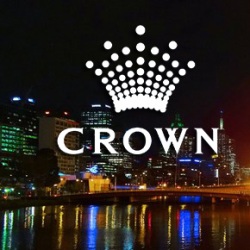MGM Resorts Calls Pequot/Mohegan Casino Plan Illegal

There is a major fight underway for gambling revenues in Connecticut and Massachusetts, and the situation has caused an executive VP from MGM Resorts International to accuse the Mohegan and Mashantucket Pequot of making an illegal and unfair agreement. The accusation comes after the tribes opted to join forces to open a joint tribal-owned satellite casino on the border of Connecticut and Massachusetts to compete with the new MGM Resorts Springfield Casino being built in western Massachusetts.
About the MGM Resorts Springfield Casino
MGM Resorts managed to beat out the Mohegan tribe’s bid to build the new casino in West Massachusetts. The proposed complex will cost $300 million to construct. Upon completion, it will have 150 tables and around 2,000 slot machines. While it’s large, it will not have some of the same amenities that are found at other News England casinos.
Tribes Unite
When MGM won the bid, both the Mohegan and Mashantucket Pequot tribes grew concerned that the new casino would lure residents who lived near the border of Connecticut and Massachusetts out of state to gamble. The tribes worked together to pay for a study into how a casino right at the border would benefit Connecticut, promising lawmakers that the casino could employ 6,000 people and generate $78 million in revenue.
An Angry Response
The tribes maintain that their move to open a new casino is to keep jobs in Connecticut, but MGM Resorts feels that the new casino’s sole purpose is to compete with the MGM Resorts Springfield Casino. Executive VP for the company, Alan Feldman, said that it was illegal and unfair for the tribes to approach Connecticut lawmakers behind closed doors and not give voters in the state a chance to weigh in on the issue.
An Unlikely Team
It’s easy to understand why Alan Feldman and other executives at MGM Resorts were blindsided by the deal, as the Mashantucket Pequot and Mohegan tribes have never been friendly. In fact, disputes between the two tribes have been going on since pre-colonial times. During the modern day period, the two warred economically operating Foxwoods Casino and the Mohegan Sun in the state.
What Prompted the Change
So what made the Mashantucket Pequot tribe and the Mohegan tribe decide to put aside centuries of rivalry? It turns out that they need one another to survive. The economic recession brought fewer gamblers through the doors of both casinos and the opening of race track casinos in New York and Pennsylvania brought fewer out-of-state tourists to Foxwoods and the Mohegan Sun.
Lost Bids Seal the Deal
Industry experts speculate that losing out on a bid to build a casino in the Boston area ultimately brought the Mohegan tribe to the point of reaching out to the Mashantucket Pequot tribe. Losing out on the deal means that the Mohegan Sun loses players from Boston who travel to Connecticut to visit the resort. By working together, the Mashantucket Pequot and Mohegan tribes have the best chance of holding onto players in Connecticut to keep their casinos as profitable as possible.
Location Decision by December
The Mashantucket Pequot and Mohegan tribes are currently in the process of choosing the best location to build their jointly run casino, and have invited applications to be directed to the Connecticut Department of Consumer Protection. Commenting on the development, Pearce Real Estate CEO Barbara Pearce, said:
“We’re obviously looking for the best possible site, and we’re looking for everybody to have a fair shot at providing us with that site. So we’re encouraging people to submit.”
The tribes expects to return a decision by December 15th, followed by the General Assembly in Connecticut then passing the necessary legislation permitting a third tribal casino in state. In the meantime, MGM Resorts has already filed a lawsuit against top Connecticut officials, including Governor Dannel Malloy, claiming that a new law paving the way for a third casino in Connecticut was unconstitutional, and did not allow MGM resorts and other casino operators from tendering a bid. As the lawsuit states:
“In short, the Act creates an unconstitutional pathway to the development of a commercial casino by the two preferred tribes. Accordingly, this Court should declare the Act unconstitutional and enjoin the defendants from enforcing, or otherwise exercising authority under, the act.”
Connecticut has responded to the legal action by noting that according to MGM’s Massachusetts casino license rival operators are not permitted to build another casino within 50 miles of MGM’s Springfield casino. The tribes’ proposed casino in Bridgeport, Connecticut, however, is around 80 miles from the MGM site.








